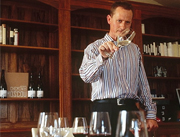BLOG
Matthew Stubbs, MW, interview on the Wines of Languedoc-Roussillon
Julien Camus
Latest News
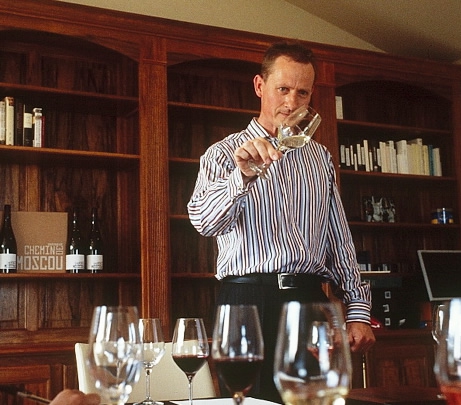
Interview with Matthew Stubbs MW, instructor & guide of the upcoming Languedoc-Roussillon Wine Immersion Study Trip (June 2015)
How was the 2014 vintage in Languedoc and in Roussillon ?
This was the proverbial roller coaster year or as one vigneronne in Faugères put it, a "rock and roll" vintage. Spring was warm and dry, July was cold and wet and the indian summer arrived in Sept accompanied by some violent storms including up to 400mm (16 inches) rain falling around Montpellier on 18th September. A crazy year where there was summer in winter and winter in summer and even a "red weather alert" during harvest ! Despite the clear meteorological challenges there are some lovely wines in 2014. There is more variation across the region than in a normal year but generally white wines did very well across the board with lovely aromas and higher levels of acidity. Reds were more varied. Grenache came back with a vengeance in 2014 after a trying time in 2013 but the yields had to be tamed to produce good wine. Syrah/Carignan fared better and Merlot and Cabernet did well in the regions that were not affected too badly by the rains. It is too early to see how the red wines will develop as many are still in barrel but the 2013 red wines are now hitting the market and the wines look gorgeous. Most producers are not given to hyperbole but even the most humble of wienmaers quietly see 2013 as the best vintage of the last 30 years..stunning refreshing whites and red wines with the structure of tannin/acidity and fruit to keep for the long term and all with alcohol levels a degree or two less than normal.
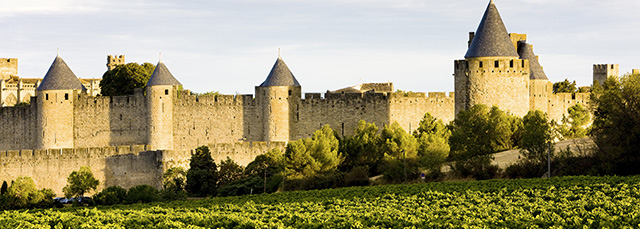
Wine trips invariable incorporate food and lessons in food culture. What are some of the regional specialties of Languedoc-Roussillon?
The Languedoc-Roussillon may not have the well known signature dishes of other parts of France like Coq au Vin, Blanquette de Veau etc but that does not mean there is no rich culinary tradition in the Midi. Probably the most famous dish of the region is Cassoulet, a hearty bean stew which though celebrated in a famous summer festival in Castelnaudary is in truth more of a winter dish. However, there are an exhaustive and impressive array of foods such as mussels from Etang de Thau, Oysters from Bouzigues and Leucate, Anchovies from Collioure not to mention organic meat reared in a number of locations a wide supply of game including wild boar, Ceps from Cévennes and goats cheese from the Pyrenees and Saint Chinian.Like their wines, they don't shout about the food but it is all around and generally fabulous too.
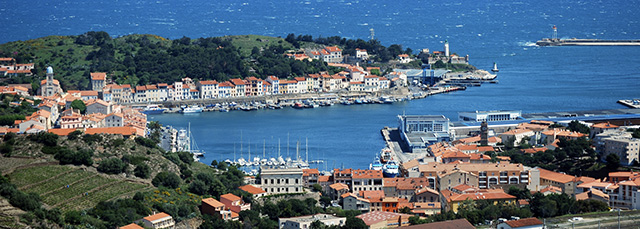
Which are the up and coming vignerons in Languedoc-Roussillon and why ?
There are too many to mention in one phrase, almost all of the Appellations have producers who are making great in-roads. Encouragingly it is a real mix. There are many new people who have arrived in the last 10 years who have invested in the region , understood its potential and are making wines worthy of attention. Coume del Mas and Domaine Gayda are 2 such examples. Others have been around for many years such as Domaine de l'Hortus, one of the leading lights of the Pic St Loup appellation. Then you have some of the self styled Grands Crus of region, Mas de Daumas Gassac and Prieuré de St Jean de Bébian. True up and coming wineries, La Pèira the domaine with the highest ranking of any LR wine by Wine Advocate, Domaine Jones in Fitou and Roc des Anges in Latour de France, Roussillon. Run by Marjorie Gallet this dynamic biodynamic producer is creating some of the most mind-blowing wines of the region. Finally don't forget the big players such as Paul Mas, Gérard Bertrand and Advini who have a network of fine individual estates capable of top wines. Last but not least, the Co-ops have gone through a period of turmoil with many merging or disappearing all together. Out of this viticultural carnage a number of "Super" Co-ops have arisen who understand quality and their terroir and as a result are also producing some great wines.
Can you tell us about your favorite place to eat and drink in Languedoc-Roussillon ?
My personal favourite is Les Halles in Narbonne, a famous covered market open 365 days a year. The produce is stunning, the atmosphere is intoxicating and it has one of the most exciting places to eat in the region, Chez Bébelle, gastronomic theatre for around €12 a head.
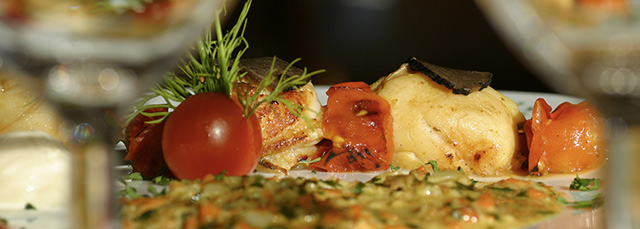
Can you tell us an expression in Occitan, the language of the Languedoc ?
The only word I know is Piquepoul which literally translates as 'Lip Stinger" due to the refreshing acidity this grape achieves. You don't hear Occitan spoken in the streets of the Languedoc. In contrast, Catalan is a living language that you will hear spoken in many parts of the Roussillon but if you really want to immerse yourself in Catalan culture head to a rugby match at Perpignan. The supporters of USAP sing the Estaca before every match, a rousing Catalan hymn of freedom. It's your way of indulging in the culture and having good fun at the same time.
What makes the Languedoc so special ?
The history, the culture, and the philosophy first and foremost. This is a region that for over a 1000 years has encouraged free thinking, challenged the status quo and championed innovation. Overlay this background with a wonderful climate, myriad of soil types, hundreds of different grape varieties and a willingness to experiment and you have a perfect combination for producing exciting and top quality wine. We are already seeing the results and it is only going to go up from here. For me the Languedoc-Roussillon is already the next classic wine region of France.
Languedoc-Roussillon Wine Immersion Study Trip with Matthew Stubbs, MW
Dates: June 7-12 , 2015 5 days, 5 nights
Limited to 18 participants
Embark on our 2015 Languedoc-Roussillon Study Trip with professional-level instruction on site coupled with a certificate program.
Experiencing an FWS immersion trip is the best way to complete your French wine education. Each trip is led by an internationally renowned expert and includes high-caliber wine tastings, vineyards tours, memorable meals, insider producer visits with top estates and more.
 |
 |

